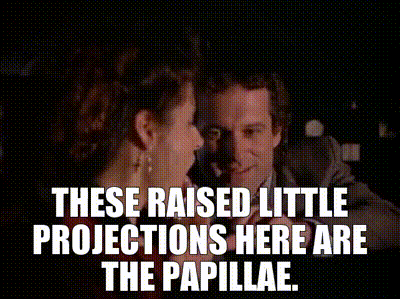You mean catwoman, right? That is not Batgirl.
Yeah!
Speaking from experience, bats shit all over the front of your house not in nice boxes like cats.
Mammalperson
We are all mammal people on this blessed day.
Speak for yourself.
I am all mammal people on this blessed day.
Dolt
Right? licks eyeball
Nice bait in the post title.
How do you not understand that’s catwoman? I know the top voted comment is about this but I still feel like it hasn’t been pointed out enough. I have no real interest in any of this and know very little about comics, and even to me it’s painfully clear that it’s not “batgirl” (I don’t even know if that’s a thing that exists).
OP, how did you fail this so badly?
If I were to conspiracy theory anything, I would say OP made the mistake on purpose. Or at least found a post that someone made the mistake on purpose.
It’s like those mobile game ads where the player keeps getting to stage wrong. It’s supposed to frustrated you into posting and driving engagement.
batgirl” (I don’t even know if that’s a thing that exists)
Did you forget about Alicia Silverstone ?
Does that mean her tongue also full of spiny little papillae…?

At least he didn’t take it out.
“Dear Penthouse…” 😆
No, which is why it’s extra gross. A human tongue on bare skin isn’t up to the task.
Not with that attitude it’s not
Catwoman: What’s a hroom?
This was the punchline I was expecting.
if this were to be true to form, batman would be dangling upside down from the ceiling.
and the next morning, after exchanging fluids intra-species, the two of them would embirth a whole new coronavirus.
I can’t remember where, but I’ve seen batman using one of those bars where you hang with special shoes to stretch your back.
Did we really expect anything different from the crazy cat lady that runs across her roof at night?
He’s just mad the air freshener is in his spot.
He guano have to wait.
Pedants: He asked if she minded. She responded saying, “Sure thing,” which is an affirmative response, meaning that she did mind. He still attempted to use the bathroom despite her saying she was uncomfortable with that.
I have difficulty with interactions in which people use “do you mind” that I have to be extra clear. Anyone else?
Pedants: He asked if she minded. She responded saying, “Sure thing,” which is an affirmative response, meaning that she did mind.
So… when you analyze language, you can think of an utterance’s semantics (what it means “at the dictionary level”) and pragmatics (what it means in context.) For example, if you’re having dinner, and someone asks “can you pass the salt?” in terms of semantics it’s a question, but in terms of pragmatics it’s generally a command or request for an action.
Similarly, I’d say Batman’s first utterance in terms of pragmatics is a request for permission, which is granted by Catwoman’s first utterance.
Thanks for the help! I can understand it retrospect, but in the moment, I will be unsure and request confirmation. It’s just how it is 🤷
I don’t mind…I guess.
What does that mean about your preference with the use of “do you mind”-like questions?
Yes?
Seriously though, the ‘do you mind’ questions like the one in the comic are really annoying to me because they are a two part question phrased for the part they don’t care about. It makes the answer confusing depending on whether it is tsken literally or not, since sometimes it is used that way.
"Do you mind if I use…’ is asking both if you can use and if the person minds. The general social expectation is that the person won’t admit to minding, and will allow the use. So in this comic catwoman is answering yes to using the bathroom, and not answering whether she cares, because the question is being asked indirectly in this context.
The ‘do you mind’ question a great example of why many neurodivergent people have such a hard time in social settings, keeping track of all of the contradictory social expectations that don’t make sense is tiring and not everyone is consistent.
Circumvent. “Do you mind?”
“Go ahead” or “I’d rather you didn’t.”
The ‘do you mind’ question a great example of why many neurodivergent people have such a hard time in social settings, keeping track of all of the contradictory social expectations that don’t make sense is tiring and not everyone is consistent.
Yes! Thank you very much. It’s at least a triple-effect because (1) we get confused about what the response means so we have to focus on solving the riddle, (2) solving the riddle consumes more mental energy so we have less in reserve, and (3) we miss out on everything that occured while we were figuring out the riddle so we have to catch up when we already run slower.
While on a pedantic level it sounds confusing, if someone responds “sure thing”, they are not necessarily directly answering the original question, but more so saying “go ahead” or “do it”. It’s weird, but sometimes people answer in the affirmative despite the answer needing to be negative.
Reminds me how annoying it is when English speakers use “ain’t no” in a sentence.
Which is just a double negative that practically almost always means the opposite of what they mean.
Double negatives affirming one another instead of negating is a common thing in language, known as “emphatic negation” or “negative concord”. Middle English used emphatic negation and various English dialects still use it to this day including African-American English. They’re saying exactly what they mean, just not in Standard English. Just like they’re probably not pronouncing the words the same way. No reason to get annoyed.
Not as bad as you, but ya, a little.
My pet peeve is interrogative greetings : how are you? how’s it going? What’s up? etc.
It’s like a preemptive attack.
this is exactly why I switched - “I hope you’re well” requires no response
I can understand your discomfort with “do you mind” type requests. It’s fitting that the full answer would have been, “It’s fine with me, but you’re not going to like it!”
When one is asked “do you mind…?” it’s perfectly correct in both grammar and politeness to avoid a simple yes or no and phrase your answer unambiguously. But sometimes it’s more fun to lean into the ambiguity with a firm “No.”
Or an enthusiastic yes.
Do you mind if I use your ___? Yes! 😊
This both disgusting and cute at the same time.
How does she clean her…bits, Batman?? That’s bacteria city, Batman! Don’t go near that mouth, Batman!
eh eh eh… batgirl

Marilise leguana
Do bats pee upside down?
was Catwoman ever white!?

deleted by creator













